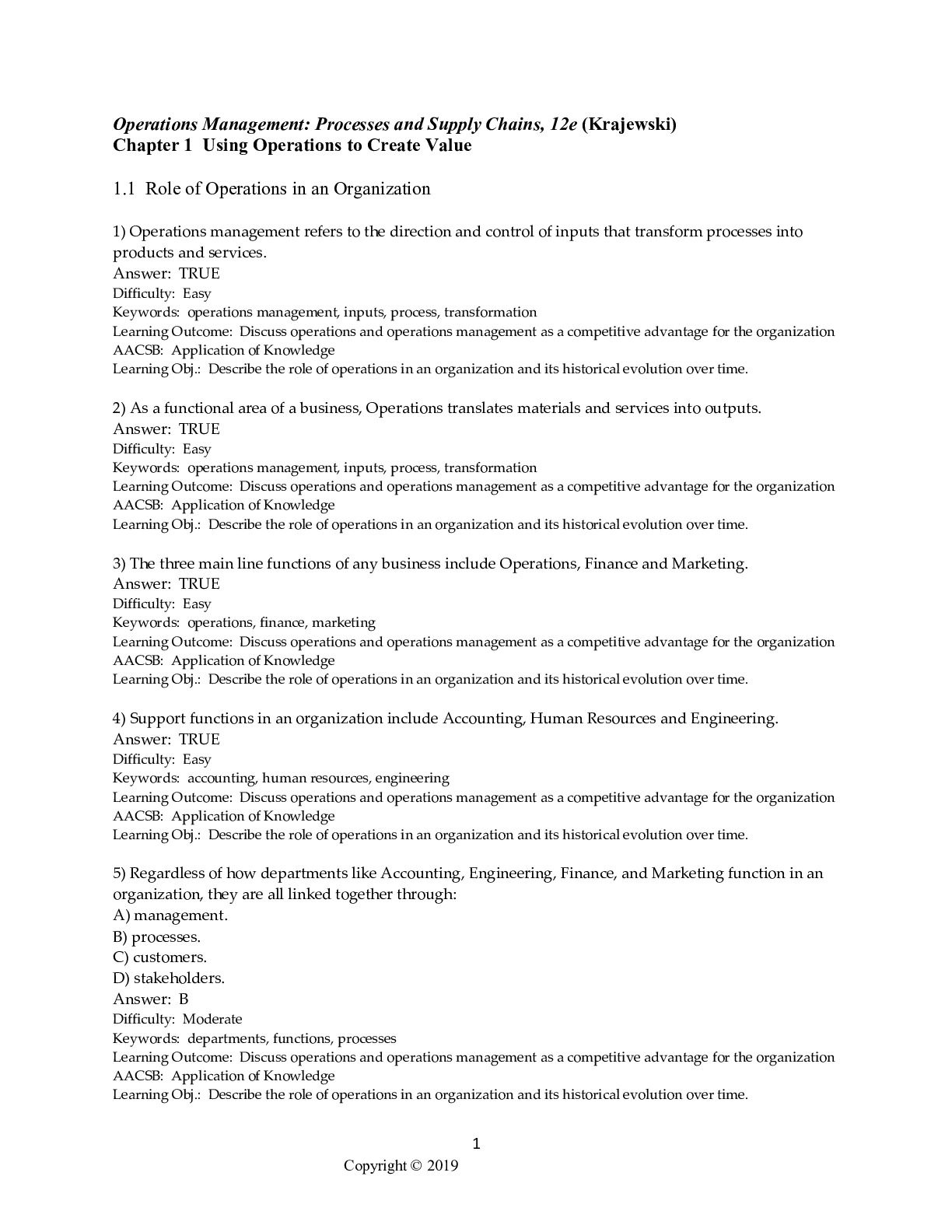
Test Bank for Operations Management, 12th Edition by Lee Krajewski
Biology > STUDY GUIDE > Study guide for Cadillac Desert Part 3 ALL ANSWERS CORRECT (All)
Study guide for Cadillac Desert Part 3, and Hidden in Plain View (Endangered Species in the Central Valley). Cadillac Desert 1. True of False. The Central Valley is drier than North Africa. 2. Tru ... e of False. The Central Valley is home to the largest and most expensive waterworks in the world. 3. True of False. The Central Valley has the richest agricultural region in the history of the world. 4. True of False. The Central Valley has the most completely transformed landscape of its size anywhere on Earth. 5. The Central Valley produces how much of America’s food? 6. In the 1700’s, how did people describe the ducks and geese in the region? 7. What large predator was found in large numbers in the Central Valley in the 1700’s? 8. What large deer-like species was found in large numbers in the Central Valley in 1700’s? 9. In 1862, a major event occurred in the Valley, stretching from San Francisco to Sacramento. What was it? 10. Who built the first dam in California? 11. By 1900’s, where did farmers get their water from? How? 12. After World War 1, salesmen went from farm to farm selling what? 13. By 1930, what happened to oak trees in the area? Why? 14. What was the biggest dam of the Central Valley Project? 18. What disaster happened in 1955? 19. This disaster led to the State Water Project to control water in the state in a massive way. The sentiment was “If any water reached the ocean, it was __ 20. What modern technology did they test to excavate waterways (blast holes in the earth for new waterways)?. 20. Central Valley Project brought water to one of the most desolate places in California – __ _ – as dry as the Mohave Desert. People thought that it would one day be home to thousands of small farms. 21. How is water controlled today for Central Valley farmers? 22. For 2 weeks each spring and fall, all the ___ in America comes from the Westlands. Enough cotton is produced each year to make _______ T-shirts. 23. What happened to the native fish and animals of the valley? 24. Winter-run Chinook salmon have mostly gone extinct. True or False. 25. With so much agriculture going on in the Westlands, problems started to develop. An “environmental time bomb”. What did this refer to? 26. What does large amounts of selenium do to birds and animals? [Show More]
Last updated: 3 years ago
Preview 1 out of 4 pages
 (2).png)
Buy this document to get the full access instantly
Instant Download Access after purchase
Buy NowInstant download
We Accept:

Can't find what you want? Try our AI powered Search
Connected school, study & course
About the document
Uploaded On
Mar 25, 2021
Number of pages
4
Written in
All
This document has been written for:
Uploaded
Mar 25, 2021
Downloads
0
Views
195
Scholarfriends.com Online Platform by Browsegrades Inc. 651N South Broad St, Middletown DE. United States.
We're available through e-mail, Twitter, Facebook, and live chat.
FAQ
Questions? Leave a message!
Copyright © Scholarfriends · High quality services·